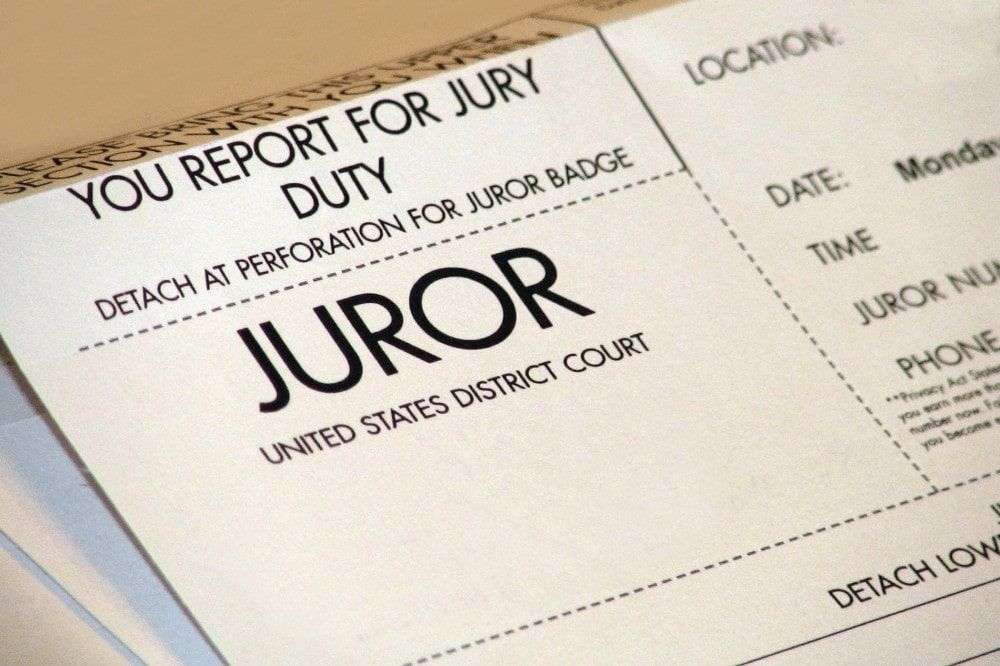What Happens When I Report for Jury Duty?
When you receive a jury summons, it’s natural to wonder what will happen when you report for jury duty. Serving as a juror is an essential civic responsibility that helps uphold the principles of justice and ensures a fair trial for all. In this article, we’ll walk you through the process of reporting for jury duty and shed light on various aspects of jury service.
Juror Orientation Program:
Upon arriving at the courthouse for jury duty, you will be checked in and directed to participate in the juror orientation program. This program includes viewing a juror orientation video, which provides you with important information about the jury process and your responsibilities as a juror. During the orientation, Jury Managers will also address any concerns or questions you may have. Additionally, a Duty Judge will welcome the new jury pool, making sure you feel comfortable and informed.
Assigning Jurors to Courtroom Service:
After the orientation, the court can start assigning new jurors to courtroom service. Jurors may be selected for specific cases based on the needs of the court. It is essential to remember that the selection process is random and unbiased, ensuring a fair cross-section of the community.
Verifying Attendance to Jury Duty:
If your employer requires a statement verifying your attendance to jury duty, you can obtain a Work Verification/Proof of Service Report upon completion of your service. This report indicates the number of days you reported for jury duty, not the specific hours spent in court. It’s important to know that your employment is protected by law while you serve as a juror. Should you encounter any issues with your employer related to your jury service, promptly notify the Jury Commission.
Responding to Jury Summons:
Your jury summons is an official court order, and failure to report for jury duty without a lawful excuse may result in contempt of court proceedings. To ensure the effectiveness of the jury system, it is crucial for everyone to participate when summoned. The overwhelming majority of people find the experience rewarding and a valuable contribution to society.
Jury Duty Experience:
Jury duty involves a temporary but significant change to your everyday life, including rearranging schedules and potentially missing work. The experience might be apprehensive for some, but most jurors report finding it highly rewarding. If you were ever involved in a dispute or faced criminal charges, you would want someone like you to make similar sacrifices to be part of the jury.
Jury Service Hours:
Jurors typically serve during normal business hours, from 9 a.m. to 5 p.m. If you are in the jury pool, you will report at 9 a.m. daily and stay in the jury assembly room until released by the Jury Managers, usually for lunch from Noon to 1:30 p.m. The release times vary, but you can expect to be present until 5 p.m. when seated on a jury.
Random Selection Process for Jurors:
The drawing of prospective jurors is performed randomly from the list of registered voters in Franklin County, as provided by the Board of Elections. This process ensures a diverse and representative group of individuals participating in jury duty. Your voting record has no influence on your selection as a juror, as only the source list is used.
Types of Cases Involved in:
The General Division of the Common Pleas Court handles both criminal and civil cases. Criminal cases in this court are on a felony-level and carry a sentence of six months or more in a state penal institution. On the other hand, civil cases involve disputes not related to probate or family law matters, such as personal injury claims, medical malpractice, and contract disputes.
Qualifications for Jurors:
Jurors do not require any special skills, training, or legal knowledge. Instead, jurors should be attentive, follow instructions, remain impartial, and apply the law as instructed by the judge. Your ability to listen carefully and evaluate presented facts is crucial in ensuring a fair trial.
Dealing with Jury Summons:
Upon receiving a jury summons, it’s important to read it thoroughly. The summons provides valuable information, including contact phone numbers, courthouse location, dress code, and instructions for handling mandatory disqualifications. If you have any questions or concerns after reading the summons, you can contact the jury office for assistance.
Volunteer and Substitute Service:
Unfortunately, jury selection is random, and individuals cannot volunteer or send substitutes in their place. State law and local rules require jurors to be selected randomly from the source list, ensuring fairness in the selection process.
Possibility of Not Sitting on a Jury:
While there’s a chance you may never get called for a case, it’s also possible that you may not be seated as a sworn juror even after being called to sit as a prospective juror. Your presence, however, plays an essential role in encouraging resolution and promoting the judicial process.
Entertainment Options While Waiting:
During the jury duty experience, you may spend some time waiting in the Jury Assembly Room before being seated on a jury panel. Bring along items to help pass the time, such as books, games, puzzles, or a laptop with wireless internet access. The court also offers a selection of entertainment options, including movies and reading materials.
Contacting Jurors During Emergencies:
In the event of an emergency, your family or contacts can reach you at the courthouse by calling the provided contact number, 614.525.3450. Messages will be delivered to you promptly in the jury assembly room or the courtroom if necessary.
Juror Residence Eligibility:
To be eligible to serve as a juror in Franklin County, you must currently reside within the county. If you have moved outside Franklin County, please respond to your summons and request disqualification from serving. Additionally, inform the Board of Elections about your change of residence to ensure you won’t be called for jury service in Franklin County.
Conclusion:
Serving as a juror is a vital responsibility that allows citizens to actively participate in the judicial process and contribute to a fair and just society. When you report for jury duty, you play a crucial role in upholding the principles of justice and ensuring that every individual has access to a fair trial. Embrace this opportunity with an open mind, as the experience can be rewarding and personally enriching.
FAQs:
- What happens when I report for jury duty?
- Upon reporting, you’ll go through a juror orientation program, including watching a video and receiving information from the Jury Managers and Duty Judge. New jurors are then assigned to courtroom service.
- Will I receive verification for my employer for jury duty?
- Yes, you’ll receive Work Verifications/Proof of Service Reports upon completing your service.
- Do I have to respond to the jury summons?
- Yes, your jury summons is an official court order, and failure to comply may lead to contempt of court proceedings.
- What types of cases will I be involved in as a juror?
- Jurors can be involved in criminal cases, which are felony-level offenses, or civil cases, such as personal injury claims or contract disputes.
- How is the selection process for jurors done?
- Prospective jurors are randomly drawn from the list of registered voters in Franklin County, ensuring a fair representation of the community.



